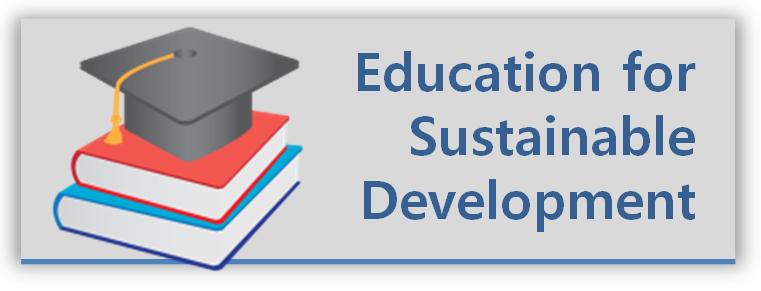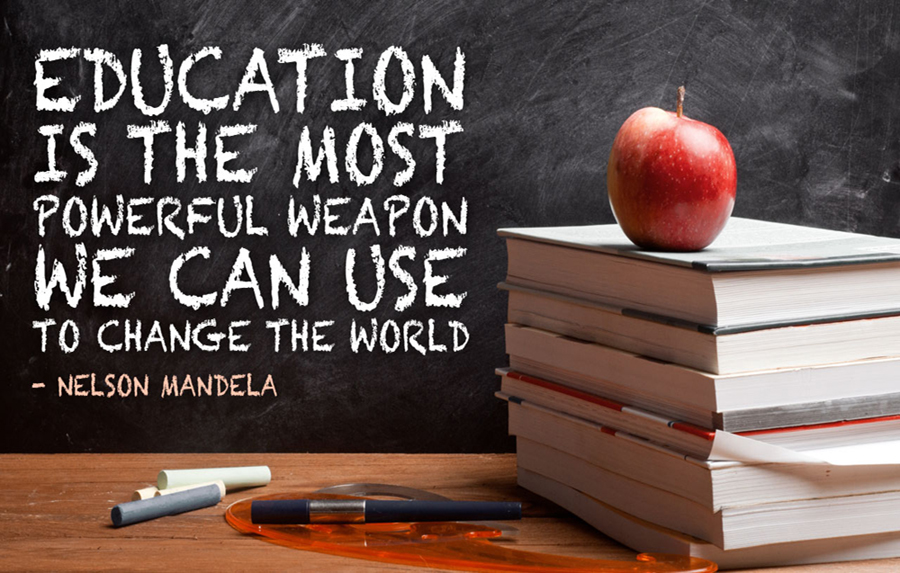Education for Sustainable Development (ESD)
Education is the key to development. The Rio de Janerio Earth Summit in 1992 adopted Agenda 21 and the Action Plan of 21st Century. The main object of the agenda is to address the concerns of ensuring that society takes into account that development needs to be sustainable to meet the needs of the present generations without jeopardizing the chances of future generations to meet their own. UNESCO was charged with the responsibility for implementing chapters 35 and 36 of Agenda 21: Science for Sustainable Development and, Promoting Education, Public Awareness and Training respectively. Chapter 36 notes that besides being a fundamental right, “Education is critical for promoting sustainable development and improving the capacity of the people to address environment and development issues.”
ESD Global Vision
The global vision for the Decade of Education for Sustainable Development was articulated as “A world where everyone has the opportunity to benefit from quality Education and learn the values, behaviors and lifestyles required for a sustainable future and for positive social transformation”.
The overall goal of the decade
The overall goal of the decade is to integrate the principles, values and practices of sustainable development into all aspects of education and learning so as to encourage societal change in behavior that will create a more sustainable future particularly in the areas of:-
- Environmental integrity
- Economic viability, and
- A just society for present and future generations
ESD is an all-encompassing endeavor to revamp education worldwide. Governments, education ministries in particular are urged to engage in processes that will ensure its successful implementation.
Objectives of the Decade on Education for Sustainable Development (DESD)
The core objectives of ESD are:-
- To promote and improve basic education including, literacy and lifelong learning for sustainable livelihoods with emphasis on access, opportunity and quality for all children and youth, in and out of school.
- To reorient existing education programmes at all levels focusing on content and methodology, including the different dimensions of sustainability namely: social, economic, ecological, cultural, knowledge, skills, ethics, values and perspectives;
- To create public awareness and understanding of the principles of sustainable development drawing on the capacities and comparative strengths of the media and civil society;
- To develop training programmes for building skills and capacities that promotes sustainable practices;
- To develop strategies for the enhancement of the required capacities for the attainment of sustainable development;
The Pillars of Sustainable Development informing ESD
Education for sustainable development is grounded on three pillars of sustainability namely:
- Society,
- Environment and
- Economy
Society: understanding social institutions and their roles in change and development as well as the democratic and participatory systems; for expression of opinion, selection of governments, the forging of consensus, and resolution of differences.
Environment: The scarcity of resources and fragility of the physical environment, the effects of human activity and decisions on the different components of the environment and the direct and indirect relationship between the environment, society and development processes. The emergent understanding will naturally empower society to commit itself to factor environmental concerns into social and economic policy development
Economy: To grasp the limits and potential of economic growth and its impact on society and on the environment is critical. This will help to expose the challenges associated with the current development thinking which elevates economic growth above everything else and in the end undermines the capacity to balance the three pillars of sustainability.
IMPLEMENTATION STRATEGY (UGANDA)
The Education for Sustainable Development (ESD) implementation strategy presents Ugandans opportunity to take responsibility for development that is sustainable. Education for sustainable development will enable all Ugandans understand and address issues in the three pillars of sustainable development namely environment, society and economy. Environmental issues that are increasingly affecting us include land degradation, climate change, and poor waste management. Social issues include human rights, population growth, security, corruption, HIV/AIDS, urbanization. Economic issues include poverty eradication, economic development and its ramifications, consumerism and effects of globalization. Through ESD, public awareness and understanding of the concept of sustainable development will be enhanced leading to a population that is active and responsible.
Key to the implementation of Education for Sustainable Development is the clarification of values in the light of environmental sustainability, social sustainability and economic sustainability. Development must take care of the environment while ensuring that environmental resources are available for all generations. The values of respect for human rights, dignity and equity should form the basis of decisions and relationships. In pursuit of economic growth, we should ensure balance and equity so that all benefit. These values must be taught to all sectors and the public.
The strategy is a framework for all sectors to take action within their own contexts. This will enable our society to be reached through various means of education while challenging people to critically look at their unsustainable behavior. The strategy compliments all national policies and plans for sustainable development. It is hoped that people’s perception and attitude will be changed towards sustainable management.





